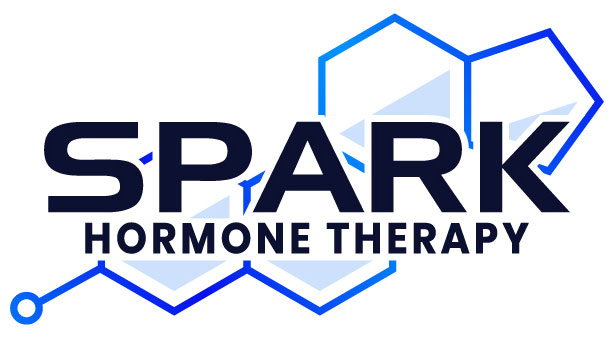Testosterone Replacement Therapy
Request A FREE Evaluation

STRENGTH AND PERFORMANCE
-
Testosterone plays a key role in regulating:
-
Muscle Mass
-
Fat Distribution
-
Sexual Function
-
Bone Density
-
Energy to Muscles
-
DESIRE AND MOOD
-
Testosterone levels decrease with age and may contribute to issues with:
-
Sexual Desire
-
Mood, like anxiety and depression
- Vaginal Dryness
- Abdominal Weight Gain
-


LOW TESTOSTERONE IN MEN
Testosterone is responsible for maintaining sexual function and libido in men. When levels are too low, it can lead to;
- Erectile Dysfunction
- Loss of Quality/Frequency of Erections
- Decreased Sex Drive
- Fatigue, Low Motivation
- Difficulty gaining and maintaining Muscle Mass
- Depression/Anxiety
LOW TESTOSTERONE IN WOMEN
Testosterone also plays a vital role for women. If you are experiencing ANY of these symptoms, we CAN help.
- Decreased Sex Drive
- Severe Fatigue
- Difficulty with Orgasm
- Brain Fog
- Exercise Intolerance
- Joint Pain
- Increase in Acne
- Thinning Hair or Hair Growth in Unwanted Places
- Thinning/Dry Skin
- Brown Spots on the Face
- Unstable Blood Sugar and Low Blood Pressure.

What is Testosterone?
Testosterone is both a male and female sex hormone, but in males it is the most dominant sex hormone in the body. Responsible for sexual development and if too low can cause a variety of health issues and symptoms. Diagnosis of Low testosterone (or low-T) is said to be less than 300 nanograms per deciliter (ng/dL). Although optimal levels, or symptom-free and feeling good, should be between 600-1400ng/dL.
Testosterone for men plays a key role in male reproductive function, regulates sperm production, bone mass, libido, fat metabolism, muscle mass and strength. Low T can cause issues like erectile dysfunction (ED), fewer morning and softer erections.
The pituitary gland is responsible for regulating testicular function. The pituitary tells the body to make more Follicle Stimulating Hormone (FSH). FSH communicates to the Sertoli cells which tell the testicles to produce more sperm. The pituitary also regulates LH (Luteinizing Hormone). LH communicates to the Leydig cells which tell the testicles to produce more testosterone.
Testosterone is highest during puberty and starts declining in your 30s. Unfortunately, we have seen a more unnatural decline in testosterone since the 1960s, in fact an additional 1% annually.
Women also need testosterone for optimal health and body function!
If you have signs or symptoms of low testosterone, we recommend your testosterone levels be checked. This can be done with a simple blood test.
Symptoms of low testosterone?
- Low sex drive/libido
- Erectile dysfunction (ED)
- Loss of muscle mass or difficulty building muscle
- Fatigue
- Low energy
- Trouble concentrating/brain fog
- Depression
- Irritability
- Spotty beard growth
- Loss of body hair
How is low testosterone treated?
There are several methods of administering testosterone replacement therapy (TRT), including:
- Daily gel/cream
- Injections
- Pellet /Implants
Types of TRT
- Gels and creams: Daily method that is applied to the upper inner arm, inner thigh, behind the knee or to the scrotum.
- Injection:?Weekly or twice weekly injections either intramuscularly or subcutaneously (under the skin).
- Implants/pellets:?A practitioner inserts rice-sized pellets in the soft tissue under the skin (typically in the glute). Depending on how quickly your body metabolizes the pellet, re-insertion is typically done every 3-5 months.
Risks and concerns with TRT
In general testosterone therapy is safe, effective, and becoming popular. There remains some controversy about the risks of prostate cancer and cardiovascular disease however recent data and studies have disputed this. There are no studies that confirm or support the idea that TRT causes prostate cancer. If a patient currently has prostate or breast cancer, TRT should be withheld until cancer free. There is supporting data that states people with either very LOW testosterone or very high testosterone may have an increase risk for cardiovascular disease as well as CHF (congestive heart failure). And to the contrary, those who maintain OPTIMAL testosterone levels show a decrease in risk of cardiovascular disease and an improvement in overall quality of life. We will be monitoring your levels carefully!
Rare but possible side effects, which are monitored and treated include:
- Jaw line acne/ oily skin
- Swelling in the ankles and feet
- Breast or nipple tenderness
- Increase in red blood cell count
- Decreased sperm count
- Testicular atrophy (shrinkage)
- Irritability
After starting TRT, blood work should be done again in 6-8 weeks. Once well established and stabilized, levels should be monitored every six months to a year!
*Testosterone replacement therapy does not cure low testosterone. If a client stops TRT, symptoms will likely return.
HOW IT WORKS
CONSULTATION
Set up an initial consultation where questions are answered and lab work is ordered.
LABS / PLAN
Follow-up appointment to discuss in-depth lab results and YOUR personalized plan.
FOLLOW UP
Depending on the therapy chosen, follow-up is initially in eight weeks then every six months. Some patients only require labs evaluation yearly depending on how YOU feel!

